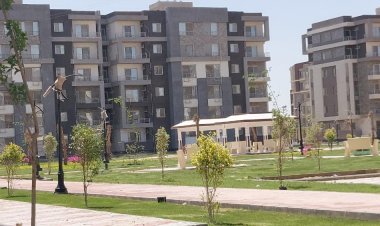$5 billion.. Syria losses from the earthquake

The earthquake that hit Syria last February destroyed 4 governorates inhabited by about 10 million people, causing the displacement of millions and huge losses to the economy.
With the brunt of the civil war in Syria, the magnitude of the catastrophe doubled. The World Bank estimated the material losses in Syria at about $5.1 billion, or 10% of the gross domestic product, after a further contraction of the Syrian economy was originally expected before the disaster of the earthquake.
The city of Aleppo is the most affected
Aleppo was one of the most affected Syrian cities as a result of the war, and witnessed many tragedies during it. The city was not spared the devastating earthquake that struck the country last month, resulting in many victims, in addition to the multiplication of the economic crisis the country is going through.
The population of Aleppo is 4.2 million, and it includes many industrial cities, in addition to contributing to 50% of Syria's exports, according to the latest statistics issued before the war in 2011. Aleppo also had the largest share in the damage resulting from the earthquake, with 45%, at a value of 2.3 billion. dollar.

Aftershocks in Lattakia and Idlib
The aftershocks of the earthquake lasted for days, affecting many border areas with Turkey, and destroying large areas in Latakia and Idlib, bringing the total estimated losses in Idlib to 1.9 billion dollars, and the value of losses in Latakia amounting to 549 million dollars.
Direct damages to residential buildings represent almost half of the total damages in the affected areas (48.5%), with a value of $2.5 billion. Damages in non-residential buildings (health facilities, schools, government buildings, and private sector buildings) accounted for 33.5%, or $9.7 billion.
Infrastructure damage accounted for 18 percent of the total damage, or $900 million, and includes transportation and critical infrastructure for electricity, water, and information and communication technology.
More contraction in growth
The Regional Director of the Middle East Department at the World Bank, Jean-Christophe Carré, said that the devastating earthquakes caused losses and doubled the suffering of the Syrian people, who have already been suffering for years, and the disaster will lead to a decline in economic activity, which will further affect the prospects for growth in Syria.
Last January, the World Bank predicted that the growth of the Syrian economy would witness a further contraction this year, to reach 3.2%, as a result of its exposure to many shocks, including the effects of climate change, the continuation of violence, the outbreak of cholera, and fuel shortages, in addition to the drop in income levels by half between 2010 and 2020.
3 million Syrians are on the brink of food insecurity
The Deputy Regional Director of the World Food Program in Syria, Ross Smith, revealed that the economic crisis in the country is getting worse year after year, and the average monthly salary is only sufficient for 3 days of food, which has witnessed a 10-fold increase in prices over the past 3 years.

Smith added that the earthquake crisis caused 12 million people to suffer from food insecurity, while nearly 3 million others are on the brink of food insecurity. Smith expressed his concern that "when the earthquake is no longer front-page news, hundreds of thousands of people will still need support."


 Shrouq
Shrouq 












